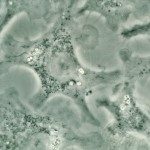Link to Pubmed [PMID] – 22105606
Mol. Med. 2012;18:270-85
Natural killer (NK) cells were first described as immune leukocytes that could kill tumor cells and soon after were reported to kill virus-infected cells. In the mid-1980s, 10 years after their discovery, NK cells were also demonstrated to contribute to the fight against bacterial infection, particularly because of crosstalk with other leukocytes. A wide variety of immune cells are now recognized to interact with NK cells through the production of cytokines such as interleukin (IL)-2, IL-12, IL-15 and IL-18, which boost NK cell activities. The recent demonstration that NK cells express pattern recognition receptors, namely Toll-like and nucleotide oligomerization domain (NOD)-like receptors, led to the understanding that these cells are not only under the control of accessory cells, but can be directly involved in the antibacterial response thanks to their capacity to recognize pathogen-associated molecular patterns. Interferon (IFN)-γ is the predominant cytokine produced by activated NK cells. IFN-γ is a key contributor to antibacterial immune defense. However, in synergy with other inflammatory cytokines, IFN-γ can also lead to deleterious effects similar to those observed during sepsis. Accordingly, as the main source of IFN-γ in the early phase of infection, NK cells display both beneficial and deleterious effects, depending on the circumstances.

